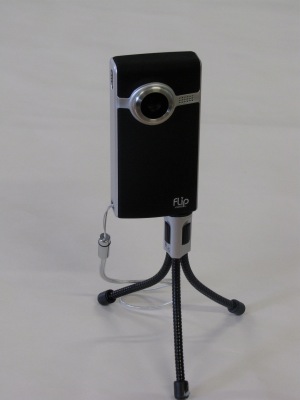Pupils were set the task of investigating how certain products are manufactured, thinking about the raw materials used and the processes involved. Instead of making a presentation and poster, the cameras were used to allow pupils to make a short film about their investigation.
How ICT supported learning and teaching
The cameras supported active learning through role playing in various ways Ð as scientists working in industry, as farmers explaining their methods, as news reporters and as members of a production team.
By filming instead of presenting pupils had less inhibitions about performing and the overall quality of their presentations was improved.
Pupils had to plan carefully their film and consider whether they had covered the intended learning outcomes that were to be explained to their audience. The cameras helped that as pupils could review and assess what they had completed.
Pupils also increased their ICT skills.
Impact / conclusion
A good level of pupil participation was noted, and most pupils really enjoyed producing this type of work. The main advantages of the cameras are in good self and peer assessment, and helping pupils improve their presentation skills.
The activity was carried out at the end of term for S2 when more time was available. To use the cameras pupils needed to learn how to use new software, and in downloading and editing films had a few teething problems. Overall the activity took longer than first anticipated.
I would certainly use the cameras again but encourage pupils to shoot film requiring minimal editing.


